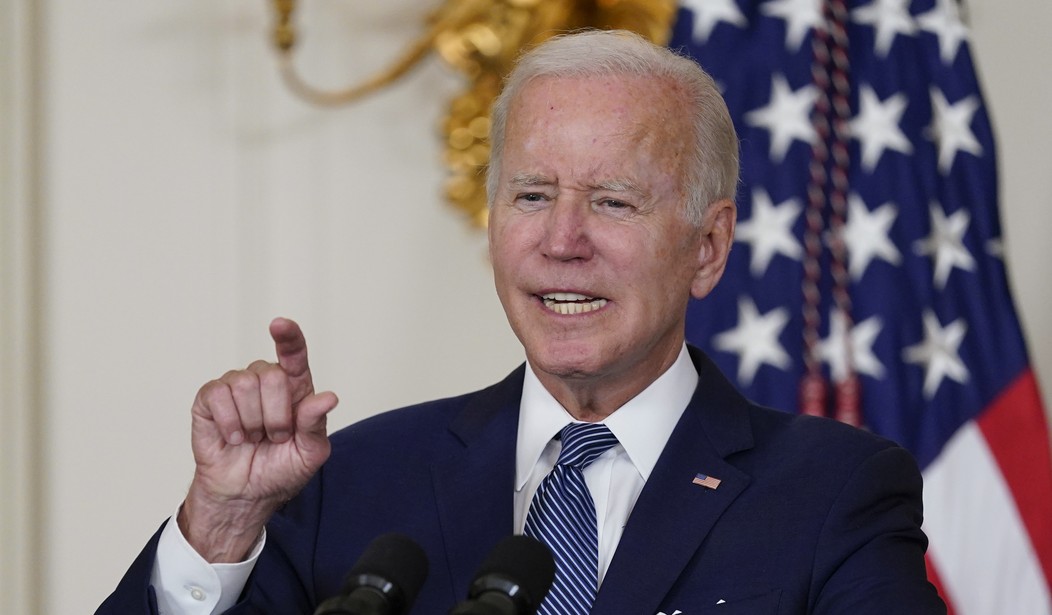The debate over the degree and severity of climate change and the best ways to respond to it has never been more urgent. Energy prices are spiking partly due to green energy policies, reducing living standards, freedom, and prosperity.
Yet the effort to stifle discussion on these issues has never been fiercer. Last week, more than a dozen major activist groups wrote a letter to tech companies demanding they crack down on "climate disinformation."
Will questioning net-zero emission policy in 2023 be treated the same as questioning Covid-19 vaccine effectiveness in 2021?
Given the real-time and remarkable consequences of green energy policy, ordinary Americans and grassroots groups must fight back against such censorship attempts. We must be allowed to ask the obvious: Are the impacts of environmental policies on the economy and our quality of life worth the pain they cause?
Winter is coming, and so are even more outrageous energy bills in Europe and North America. Natural gas prices are around ten times higher in Europe than a year ago. The annual energy bill at one well-known British pub has jumped from £60,000 to £420,000. Electricity bills are almost three-quarters of British retirees' state pensions. It's no exaggeration to say that some people will die this winter because of sky-high energy prices.
At Steamboat Institute's Freedom Conference in August, Montana Sen. Steve Daines said, "Europe is the movie trailer of where America is headed." Yet there's still time to avoid this horror show through persuasion and robust debate.
Unaffordable energy prices are a feature, not a bug, of green energy policy. Environmentalists intend for rising costs to reduce energy use and emissions. President Obama openly admitted that if green energy policies he supports are enacted, "electricity rates would necessarily skyrocket."
Yet the pain of recent and proposed green energy regulations will produce little-to-no environmental gain. Thanks mainly to the fracking revolution, the share of global CO2 produced by the U.S. has already fallen by nearly half -- from 24 percent to 13 percent -- since 2000. The inconvenient truth is that expensive policies to address this small share of global CO2 will not meaningfully affect climate change but will significantly impact Americans' quality of life.
An analysis using the same climate sensitivity model as the U.N.'s Intergovernmental Panel on Climate Change concludes that, even if the U.S. eliminated all its emissions, the world would only be 0.137 of a degree Celsius cooler by 2100.
Making such energy policy cost-benefit analyses is increasingly verboten. The mainstream media has given up even the pretense of objectivity on this matter. YouTube has demonetized climate change skepticism content. Facebook "fact-checkers" flag posts that question the prevailing narrative, including op-eds by leading environmentalists like Bjorn Lomborg. Google has buried independent climate change analyses in its search results.
Self-censorship (the worst kind, according to George Orwell) is pervasive. Being labeled a climate change “denier” is often career suicide. And given how widely this epithet is tossed around, even the tiniest deviation from the party line is often enough to get painted with this brush.
Steamboat Institute is fighting against this pervasive censorship by hosting a series of campus debates this month on the resolution, "Climate science compels us to make large and rapid reductions in greenhouse gas emissions." Steven Koonin, former Undersecretary for Science in the Obama Administration, will debate climate experts Daniel Schrag from Harvard, Gernot Wagner from Columbia, and Andrew Dessler from Texas A&M, respectively, at the University of Maryland, College Park (Oct. 25), University of Dallas, Irving (Oct. 26), and Oklahoma State University’s Hamm Institute for American Energy (Oct. 27).
Recommended
Given all the climate “experts” advocating for net zero emissions and warning of imminent climate catastrophe, you would expect it to be easy to find debaters willing to argue the affirmative on this resolution. But, in fact, the opposite is true.
Some well-known climate scientists and academics responded it was “wildly irresponsible” to give Dr. Koonin a platform and there is “no room for debate on these issues.” A well-known climatologist who is on Reuter's “Hot List” of the world’s top climate scientists said, “I don’t debate climate science. It’s a poor way to get at the truth.”
Last year, the United Nations claimed climate change is a "code red for humanity" with "billions of people at immediate risk." That may be true, but not necessarily in the way the U.N. has in mind. As Dr. Koonin argues, "Precipitous climate action is a far greater threat than climate change." This view deserves a fair hearing.
























Join the conversation as a VIP Member